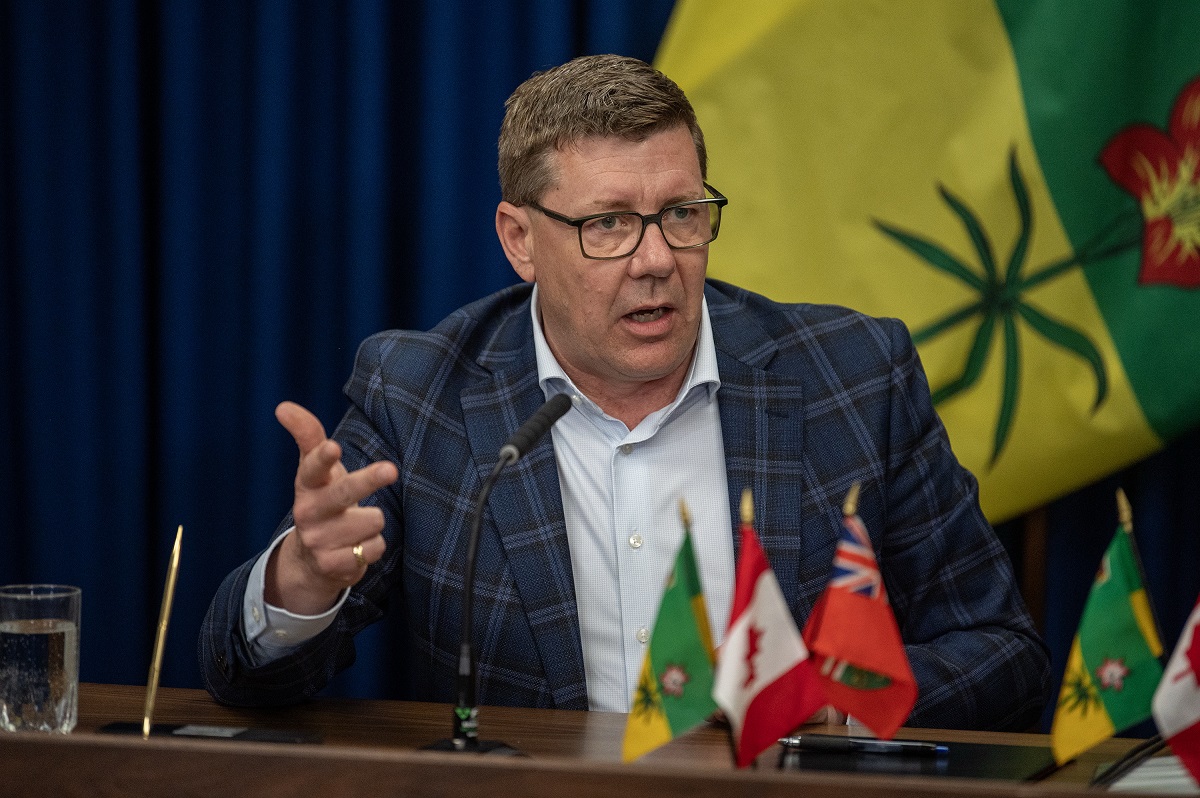Premier Scott Moe, back in Saskatchewan after a trip to China to try and resolve a trade dispute, said Monday he’s hopeful they can find a solution.
Moe told reporters he and Prime Minister Mark Carney's parliamentary secretary Kody Blois met last week with Chinese officials who oversee an agency responsible for imposing steep tariffs on Canadian canola products.
They also met with Li Chenggang, the international trade negotiator with China's Ministry of Commerce, and other industry officials.
"(The meeting) was a little more positive than I think I expected," Moe said at Saskatoon's airport.
"I think there's confirmation that China's very interested in not looking back, but looking forward in recalibrating the trade relationship that we have, and moving forward in a pragmatic and reasonable fashion that is good for both countries."
China has imposed a 76 per cent tariff on Canadian canola seed, widely seen as a response to Canada’s 100 per cent tariff on Chinese electric vehicles.
Beijing has also imposed duties of 100 per cent on Canadian canola oil, meal and peas, along with other levies on pork and some seafood products in response to Canada's 25 per cent tariffs on Chinese steel and aluminum.
Moe said his recent meeting was just one step in many that will be needed for both countries to resolve the trade dispute.
He said it's likely Blois and other federal ministers will be in China "very soon" to continue speaking with officials. Carney could have an opportunity to meet Chinese President Xi Jinping at global summits later this year, he added.
"I would say engage, engage, engage," Moe said.
"All these negotiations, whether it be in the United States of America, China or any other country in this new world order ... we need to represent Canada boldly without apology."
Carney's office did not immediately respond to a request for comment about whether Blois and ministers plan on visiting China again for further talks.
His office said last week the meeting in China was constructive.
Saskatchewan's Opposition NDP has urged Moe and Carney to go to China and get an immediate resolution.
New Democrats said in a news release Monday that Moe's "last-minute trip" was fruitless.
"Nothing, nada -- as expected," trade critic Kim Breckner said in the release.
Breckner pointed to Statistics Canada data that shows Saskatchewan's year-to-date exports to China have fallen by nearly 30 per cent.
Canola, one of Canada's and Saskatchewan's most valuable crops, is said to have contributed $43 billion to Canada's economy last year and employed 200,000 people.
Moe said the talks are signals of other positive developments, including the relaunching of the Joint Economic and Trade Commission, a forum where Ottawa and Beijing can attempt to sort out bilateral trade issues.
He also said Ottawa's decision to pause its electric vehicle sales mandate also shows Canada is open to "moving forward in a broader discussion, in a pragmatic and strategic way."
While Moe has previously said he would like Ottawa to remove the electric vehicle tariff, he said Monday that Canada must find the right balance in dealing the United States and China.
"It's not as simple as lifting EV tariffs," he said. "That's why it's so important to engage."
Canada has justified its levies on Chinese EVs by arguing they protect planned investments at home. Canada's move was in lockstep with then-U.S. president Joe Biden, who also slapped tariffs on Chinese EVs.
Federal Agriculture Minister Heath MacDonald has said Ottawa is looking at possibly removing the EV tariff but cautioned that other trade concerns are being kept in mind.
-- By Jeremy Simes in Regina
This report by The Canadian Press was first published Sept. 15, 2025.
